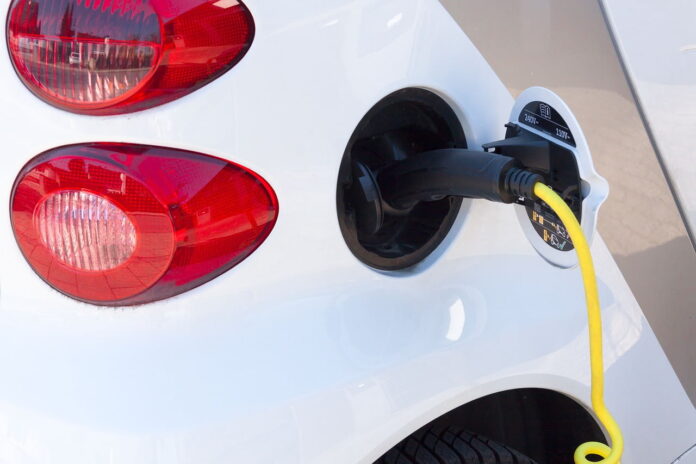The automotive industry stands at a pivotal crossroads, where the path to sustainability is as critical as the journey itself. Eco-innovations in the automotive sector are not just a response to environmental concerns but also a strategic move towards a new era of mobility. These innovations are reshaping the industry, offering solutions that reduce the environmental impact of vehicles, and setting the stage for a cleaner, more sustainable future.
The concept of eco-innovation in the automotive industry encompasses a broad range of technologies and practices aimed at minimizing the ecological footprint of vehicles. From the design phase to the end of the vehicle’s life cycle, eco-innovations seek to address the environmental challenges posed by the automotive sector. This includes reducing greenhouse gas emissions, improving fuel efficiency, and utilizing sustainable materials and production methods. As consumer awareness and regulatory pressures increase, automakers are accelerating their efforts to develop eco-friendly vehicles that meet the demands of a rapidly changing market.
Advancements in Electric Vehicle Technology and Infrastructure
Electric vehicles (EVs) are at the forefront of the automotive industry’s transformation. With zero tailpipe emissions, EVs offer a promising alternative to traditional combustion engines. Technological advancements in battery efficiency, energy density, and charging infrastructure are making EVs more accessible and practical for everyday use.
The development of fast-charging networks and the integration of renewable energy sources are further enhancing the appeal of electric mobility. As battery costs continue to decline and range anxiety dissipates, EVs are poised to become a dominant force in the market.
The Rise of Hybrid Vehicles: Combining Efficiency with Performance
Hybrid vehicles have emerged as a bridge between conventional cars and the future of electric mobility. By combining an internal combustion engine with an electric motor, hybrids offer improved fuel efficiency and reduced emissions without compromising on performance.
Regenerative braking systems in hybrids capture energy that would otherwise be lost, further enhancing their eco-friendly credentials. Plug-in hybrids (PHEVs) take this concept a step further, allowing drivers to recharge their batteries from the grid and operate on pure electric power for short distances, making them an attractive option for those not ready to transition fully to EVs.
Cutting-Edge Materials and Manufacturing Processes for Lighter Cars
The weight of a vehicle plays a significant role in its fuel consumption and emissions. Automakers are turning to advanced materials such as high-strength steel, aluminum, magnesium, and carbon fiber to reduce vehicle weight without sacrificing safety or performance.
These materials, combined with innovative manufacturing processes like 3D printing, are revolutionizing car design and production. Lightweight vehicles require less energy to move, leading to better fuel economy and lower emissions. As these materials become more cost-effective, they are likely to become standard in the construction of eco-friendly vehicles.
Emission Reduction: Catalytic Converters and Alternative Fuels
Reducing emissions from vehicles is a critical aspect of eco-innovation. Catalytic converters have been instrumental in decreasing the release of harmful pollutants by converting exhaust gases into less harmful substances. Advances in catalytic converter technology continue to improve their efficiency and lifespan.
Additionally, the use of alternative fuels such as biodiesel, ethanol, hydrogen, and natural gas can significantly lower the environmental impact of transportation. These fuels often produce fewer emissions than conventional gasoline or diesel and can be derived from renewable sources, contributing to a more sustainable energy cycle.
## The Future of Automotive Eco-Innovations: Trends and Predictions
The future of automotive eco-innovations is bright, with trends indicating a shift towards more integrated and intelligent systems. Autonomous driving technology, coupled with eco-friendly vehicles, has the potential to optimize driving patterns for maximum efficiency. The rise of the circular economy is also influencing the industry, with a focus on vehicle recycling and the reuse of materials.
Innovations in vehicle-to-grid (V2G) technology could enable EVs to contribute to energy storage and stabilization of the power grid. As we look ahead, the convergence of digital technology and environmental sustainability will continue to drive the evolution of the automotive industry, leading to cleaner, smarter, and more efficient vehicles for generations to come.
Eco-innovations in the automotive industry are not just reshaping the way we think about cars but also how we approach the broader challenges of environmental sustainability. With each technological breakthrough and policy initiative, we move closer to a future where the vehicles we drive contribute positively to the world we live in. As consumers, policymakers, and industry leaders work together, the road ahead looks increasingly green, promising a journey that is as responsible as it is revolutionary.
